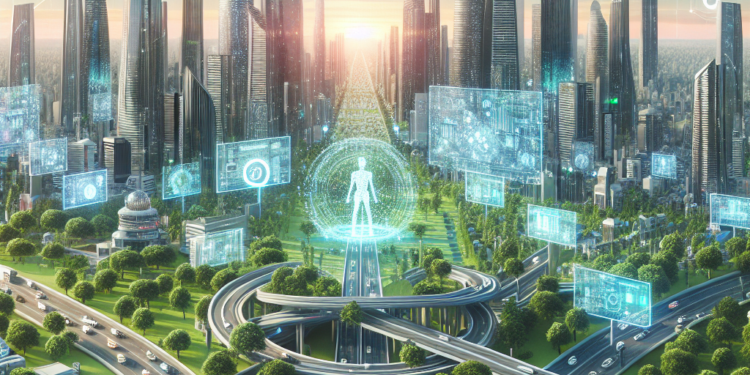Case Study: AI in Smart Cities Development
The evolution of technology has always played a crucial role in shaping the development of cities around the world. With the emergence of artificial intelligence (AI), cities are now looking for innovative ways to improve various aspects of urban living. In this case study, we will explore how AI is being utilized in the development of smart cities to enhance efficiency, sustainability, and overall quality of life.
Introduction to Smart Cities
Smart cities are urban areas that use information and communication technologies (ICT) to improve the quality of life for its residents. These cities utilize data and technology to enhance transportation, public services, energy efficiency, and communication among other aspects. By integrating AI into the infrastructure of these cities, they can become more efficient and sustainable while also optimizing resources and services.
AI in Transportation
One of the key areas where AI is making a significant impact in smart cities development is transportation. AI-powered systems can help optimize traffic management, improve public transportation systems, and enhance the safety of pedestrians and cyclists. For example, AI algorithms can analyze traffic patterns and adjust traffic lights in real-time to reduce congestion and improve the flow of traffic.
Additionally, AI-driven autonomous vehicles are being tested in smart cities to provide efficient and safe transportation solutions. These self-driving cars are equipped with sensors and cameras that enable them to navigate city streets and interact with other vehicles and pedestrians. By reducing the need for personal vehicles, these autonomous cars can help decrease traffic congestion and pollution in urban areas.
AI in Energy Management
Another area where AI is being utilized in smart cities development is energy management. By implementing AI systems to monitor and control energy usage in buildings and infrastructure, cities can optimize their energy consumption and reduce costs. For example, AI algorithms can analyze data from smart meters to identify patterns and trends in energy usage, and adjust heating, cooling, and lighting systems accordingly.
Furthermore, AI can help cities integrate renewable energy sources such as solar panels and wind turbines into their energy grids. By forecasting energy production and demand, AI systems can ensure the efficient use of renewable resources and reduce reliance on fossil fuels. This not only helps cities reduce their carbon footprint but also makes them more resilient to fluctuations in energy prices and supply.
AI in Public Safety
Public safety is another crucial aspect of smart cities development that can benefit from AI solutions. AI-powered systems can help law enforcement agencies detect and prevent crimes, respond to emergencies more efficiently, and improve overall public safety. For example, AI algorithms can analyze data from surveillance cameras and sensors to identify suspicious activities and alert authorities in real-time.
Additionally, AI can be used to predict and prevent accidents and natural disasters by analyzing data from various sources such as weather forecasts, traffic patterns, and social media. By leveraging AI to anticipate potential risks and mitigate them proactively, cities can ensure the safety and well-being of their residents.
Challenges and Opportunities
While AI offers numerous benefits for smart cities development, there are also challenges that need to be addressed. Privacy concerns, cybersecurity risks, and ethical implications are some of the key issues that arise with the implementation of AI in urban environments. Cities need to ensure the responsible and transparent use of AI technologies to protect the rights and interests of their residents.
On the other hand, AI presents opportunities for cities to innovate and improve the quality of life for their citizens. By leveraging AI to analyze data, optimize resources, and enhance services, smart cities can become more sustainable, resilient, and inclusive. With the right strategies and partnerships, cities can harness the power of AI to create a better future for everyone.
Conclusion
In conclusion, AI is revolutionizing the way cities are being developed and managed around the world. By integrating AI-powered systems into their infrastructure, smart cities can enhance efficiency, sustainability, and overall quality of life for their residents. From transportation and energy management to public safety and healthcare, AI has the potential to transform urban environments and make them more livable and resilient.
As cities continue to grow and evolve, the adoption of AI technologies will play a crucial role in shaping their development. By embracing innovation and collaboration, cities can unlock the full potential of AI and create a better future for generations to come. Smart cities are not just a vision but a reality that is being shaped by AI and its transformative capabilities.













